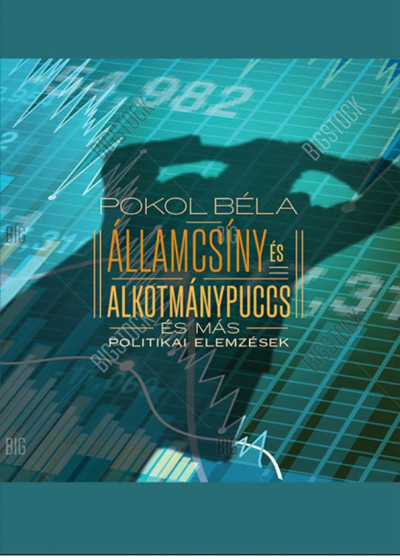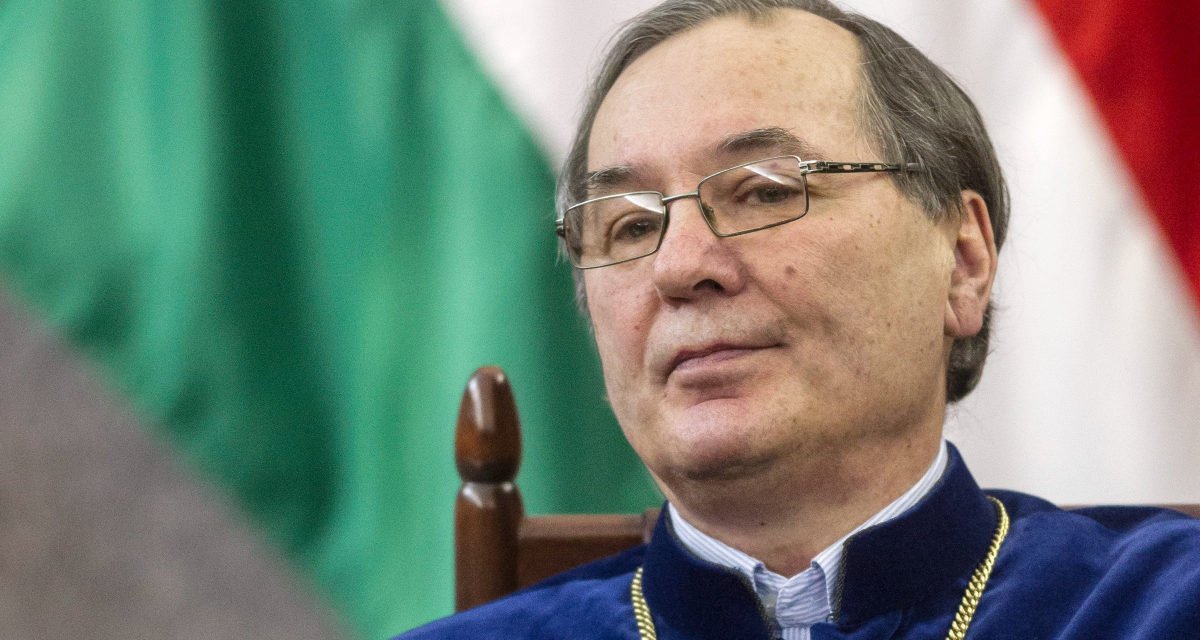Although the opposition will certainly fall apart again by the autumn due to mutual salami, the parties will probably tear away supporters from each other or form smaller alliances, but Fidesz cannot sit back and ask for a coffee now, because at the moment the protection of the constitution has not been resolved. constitutional lawyer Béla Pokol indicated in his new book the other day, reviewed by the Magyar Nemzet.
It seems obvious that the opposition does not have a unified program - or even any - and is more and more openly striving to acquire state power, armed bodies and the key to the treasury at any cost. When he acquired the latter in 2002, he methodically looted the treasury, and in the case of the former, he used the police to shoot among his own people! If it is not possible to win by election, let there be a coup, anarchy and street fights. The Gyurcsánys also waved this off several times. (There is plenty of practice within the family! At most a little bit more!)
That is why, according to constitutional judge Béla Pokol, the constitutional guarantees that prevent the legitimate constitution from being ignored in the event of a possible narrow left-wing majority should be incorporated into the Basic Law.
They also have a recipe for this, which - if the current constitutional majority parliamentary parties (Fidesz-KDNP) do not act in this cycle - they will copy it if they succeed!
They would follow the constitutional coup of the former Marxist Venezuelan president, Hugo Chávez, when they announce that if they get into government, they would rewrite the Basic Law even in the absence of a two-thirds majority!
Pokol warns in the Államcsíny és aktotmánypucs that already in 2011 there were suggestions - for example in the left-liberal Magyar Narancs - that it was acceptable for the then-opposition to adopt a constitution even if it came to government but lacked a two-thirds parliamentary majority, for example by means of a simple referendum.

Photo: Libri Publishing House
In the last six months, these suggestions have come up again.
Although this procedure would be clearly and completely illegitimate, Béla Pokol sees that a constitutional coup is much more difficult to prevent and prevent than a government coup.
This is justified by the fact that, while a coup d'état at the level of government power can largely be prevented with secret service tools before it happens, in the case of a constitutional coup, there is no longer such a chance for this. Because by the time of the illegitimate constitutional attempt, the government forces already dominate the state, so they can simply push aside the state's constitutional framework, and by disposing of the unacquired constitutional power, they start to transform the foundations of the state's power.
The author of the book also proposed a solution.
According to him, action should be taken against political organizations that are legally preparing to gain government power, but are also preparing a constitutional coup while they are still outside of government power. He thinks this can be achieved by increasing "internal resistance", that is, by strengthening the protection of the Basic Law.
In order to prevent the illegitimate rewriting of the constitution, for example, the author proposes to record as an amendment to the basic law that the amendment of the constitution - or the creation of a new constitution - is possible according to the current constitutional order only in the Parliament and only in the prescribed manner, while the way around this is unconstitutional and prohibited.
According to Béla Pokol, enshrining the constitutional guarantee in the basic law is also important because unconstitutional procedures can become common practice even in the West. According to him, it is characteristic of the mainstream intellectual and political currents of the Western world that they are lenient even in the case of major violations of law.
Magyar Nemzet reminds us: the left-wing idea of a constitutional coup was originally attributed to Venezuelan President Hugo Chávez, and the illegal precedent quickly gained ground in South America. Béla Pokol recalls that the Marxist leader wanted to create a new constitution in 1998, but he did not have the required two-thirds parliamentary majority. In order to expand his room for maneuver, the government he appointed therefore issued a decree, based on which Chávez's narrow parliamentary majority convened a "constituent assembly" made up of their confidants and lawyers.
It was here that the text of the constitution was prepared, which they wanted to have passed by a direct referendum, bypassing the parliament.
Regarding the referendum, majority criteria were established that conflicted with the current constitution. The government then addressed the question of whether it could do this constitutionally to the supreme court there, which has jurisdiction over constitutional issues. And the majority of judges who are close to Chávez argued that although the constitution is silent on the possibility of a constitution that can be created directly by the people, this cannot mean a prohibition. With this, Chávez's plan, which was finally implemented, was practically recognized as constitutional.
The model called a constitutional coup by Béla Pokol proved to be contagious in Latin America, this solution was later adopted by Ecuador and Bolivia.
Something similar is being prepared on the domestic left, so it is worth ruling out this possibility even if it is not expected that the Gyurcsánys will get close to the steering wheel with this fraudulent coalition move!
Source: mandiner.hu/ Magyar Nemzet
Featured image: mandiner.hu












